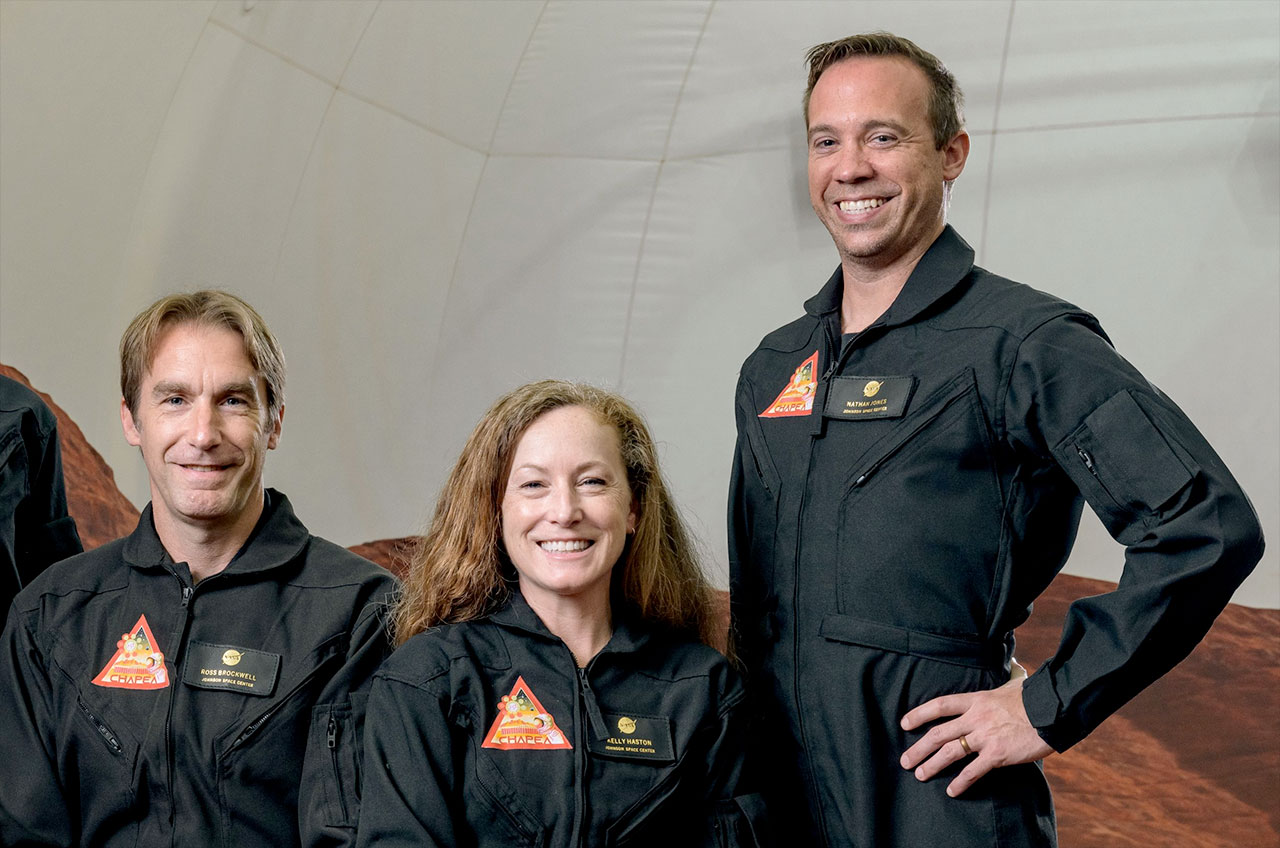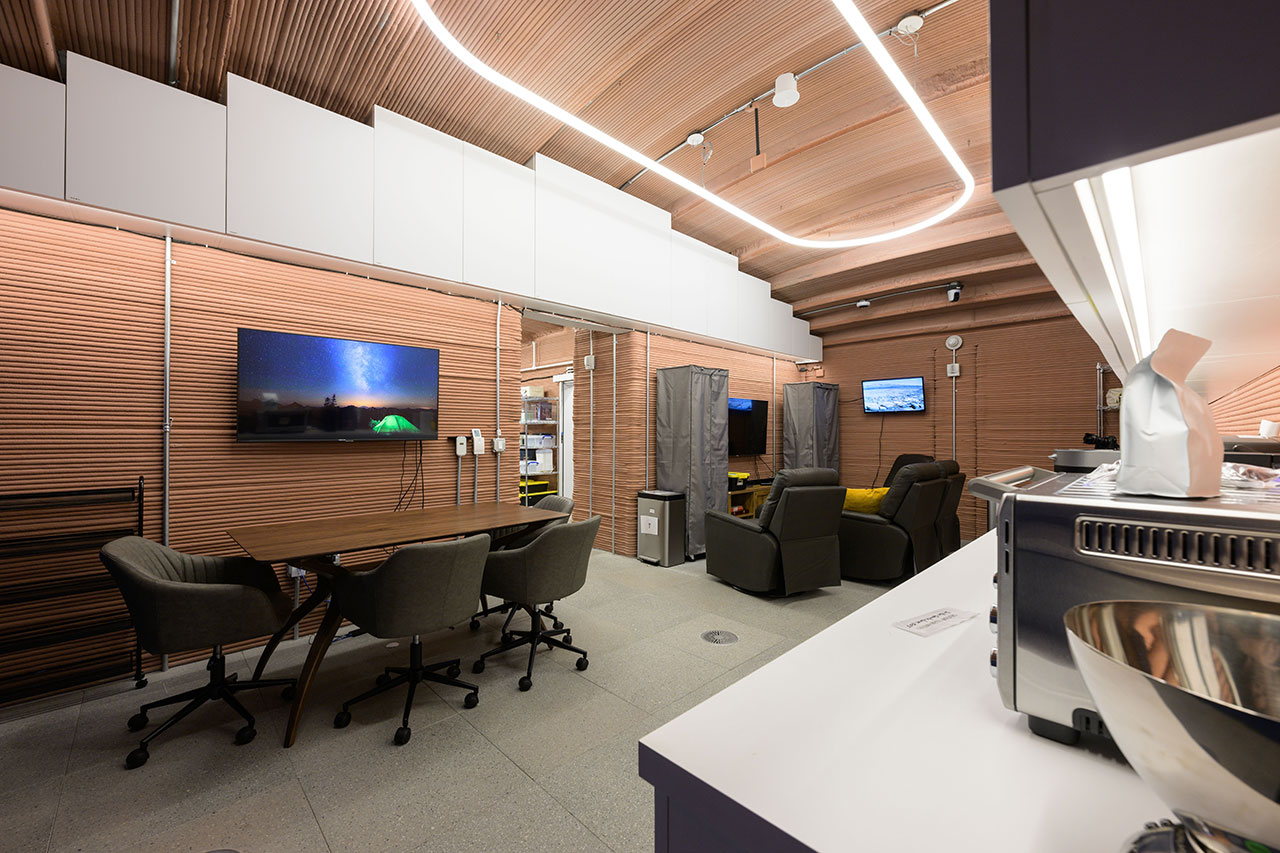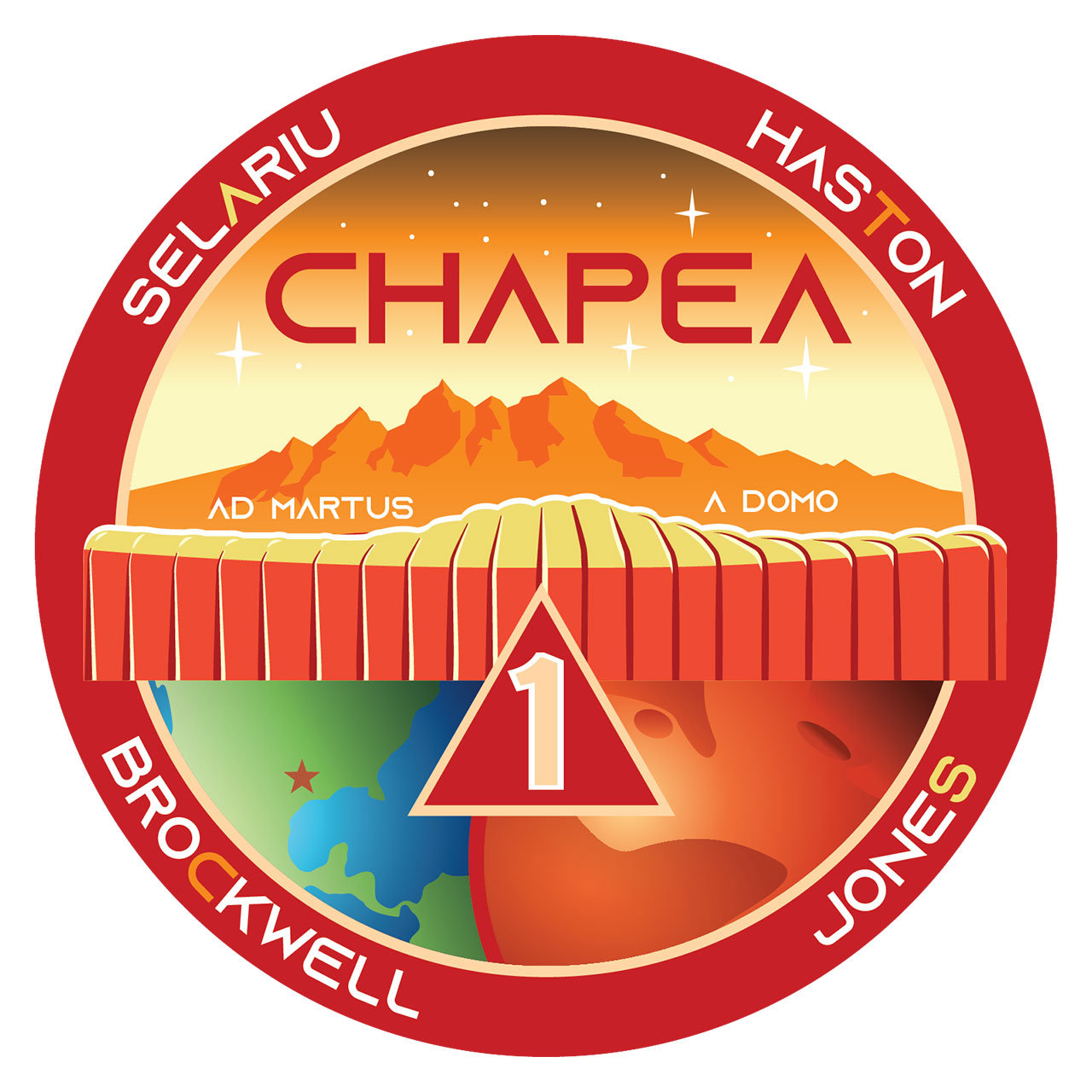1 year on 'Mars:' NASA analog astronauts begin mock Red Planet mission today and you can watch it live
Kelly Haston, Ross Brockwell, Nathan Jones and Anca Selariu are set to enter Mars Dune Alpha at 7:30 p.m. ET tonight (June 25).

The next time that Kelly Haston, Ross Brockwell, Nathan Jones and Anca Selariu will see blue sky, a year will have gone by on Earth.
Not that the four "analog astronauts" are leaving the planet, but for the next 12 months they will live inside a mock Mars base located at NASA's Johnson Space Center in Houston, Texas, where they will be remotely observed and studied by scientists. As the first of three planned Crew Health and Performance Exploration Analog, or CHAPEA, crews, Haston, Brockwell, Jones and Selariu will help inform the space agency how to better design and plan for future human missions on the real Martian surface.
Mission 1 gets underway tonight (June 25) as the four volunteers enter the 1,700-square-foot (158 square meters) habitat, known as "Mars Dune Alpha," at 7:30 p.m. EDT (2330 GMT). They will not leave the 3D-printed structure — other than to conduct the occasional Mars-walk within an adjoining 1,200-square-foot (111 square m), enclosed Mars "sandbox" — until July 7, 2024.
"To me, this is really exciting, because one of the things that's different than some of our previous analogs at NASA is, people will be in isolation as a crew for 378 days," Suzanne Bell, lead for NASA's Behavioral Health and Performance Laboratory at Johnson Space Center, said in an interview with collectSPACE.com. "We also do analogs in something called HERA, the Human Exploration Research Analog, and our missions there have been 45 days. And then we collect data at other analogs, too, with varying lengths, but this will be three, over one yearlong missions, which is a really great extended isolation."
Related: A month on 'Mars': Preparing to visit the Red Planet ... on Earth
The crew was selected to be "astronaut-like," according to Bell, with a requirement that they have a degree in one of the STEM (science, technology, engineering and mathematics) fields, as well as professional experience in their chosen field, piloting experience or military training. They also had to pass the same physical and psychological testing as astronaut candidates to ensure they were fit for the program.
Haston, a research scientist studying human disease, is the mission's commander. Brockwell, a structural engineer, is the crew's flight engineer. Jones is the medical officer, pulling on his experience an emergency medicine physician, and Selariu, a microbiologist in the U.S. Navy, is science officer.
Selariu was originally selected to be a backup crew member, but replaced Alyssa Shannon, an advanced practice nurse, prior to the mission starting. NASA did not provide an explanation for the change.
Haston, Brockwell, Jones and Selariu will not only have to survive living together for more than a year, but also adjust to some of the same changes that a crew on Mars would face.

"What CHAPEA is really about is Mars-realistic conditions in terms of resource restrictions, so isolation confined with the living space being one of them," said Bell. "But we're also restricting the crew to a spaceflight food system, time delayed communications, mission-relevant timelines, contingency situations and other resource restrictions."
A mission control and safety console will be staffed at all times, but messages from Mars Dune Alpha will take 22 minutes to be received, the same time it would take for a call from Mars to reach Earth. And the crew will be eating freeze-dried, thermostablized and shelf-stable foods, but as they are not simulating Martian gravity (38% of the surface gravity on Earth), they will be saved from using a special toilet.
The crew will also remain on Earth time, counting days (24 hours) rather than sols (approximately 24 hours, 39 minutes, 35 seconds).
"My understanding of the research we've looked at so far with the Mars sol is that expected impacts would be heavily on Mission Control," Bell said, "while our focus for this particular analog is the impact on the crew and their human health and performance."

Otherwise, the CHAPEA crew will live for the next year as though they were really on Mars, taking part in the same kinds of activities that astronauts on the Red Planet would do. They will be instructed by Mission Control to perform science investigations, perform maintenance work on the habitat and maintain their fresh food crops.
They may also encounter periodic, unexpected problems to see how they react. What those additional "stressors" might be, Bell is not saying.
"If I told you that, it wouldn't be a surprise," she told collectSPACE. "A lot of our focus is simply with resource restrictions. So if people don't get to choose what's on their menu, how does that affect their health? Those are the types of things we're focused on for this series of missions. That will be a great baseline for us to then continue to explore all of these different possibilities of ours."
Follow collectSPACE.com on Facebook and on Twitter at @collectSPACE. Copyright 2023 collectSPACE.com. All rights reserved.
Get the Space.com Newsletter
Breaking space news, the latest updates on rocket launches, skywatching events and more!
Join our Space Forums to keep talking space on the latest missions, night sky and more! And if you have a news tip, correction or comment, let us know at: community@space.com.

Robert Pearlman is a space historian, journalist and the founder and editor of collectSPACE.com, a daily news publication and community devoted to space history with a particular focus on how and where space exploration intersects with pop culture. Pearlman is also a contributing writer for Space.com and co-author of "Space Stations: The Art, Science, and Reality of Working in Space” published by Smithsonian Books in 2018.In 2009, he was inducted into the U.S. Space Camp Hall of Fame in Huntsville, Alabama. In 2021, he was honored by the American Astronautical Society with the Ordway Award for Sustained Excellence in Spaceflight History. In 2023, the National Space Club Florida Committee recognized Pearlman with the Kolcum News and Communications Award for excellence in telling the space story along the Space Coast and throughout the world.

